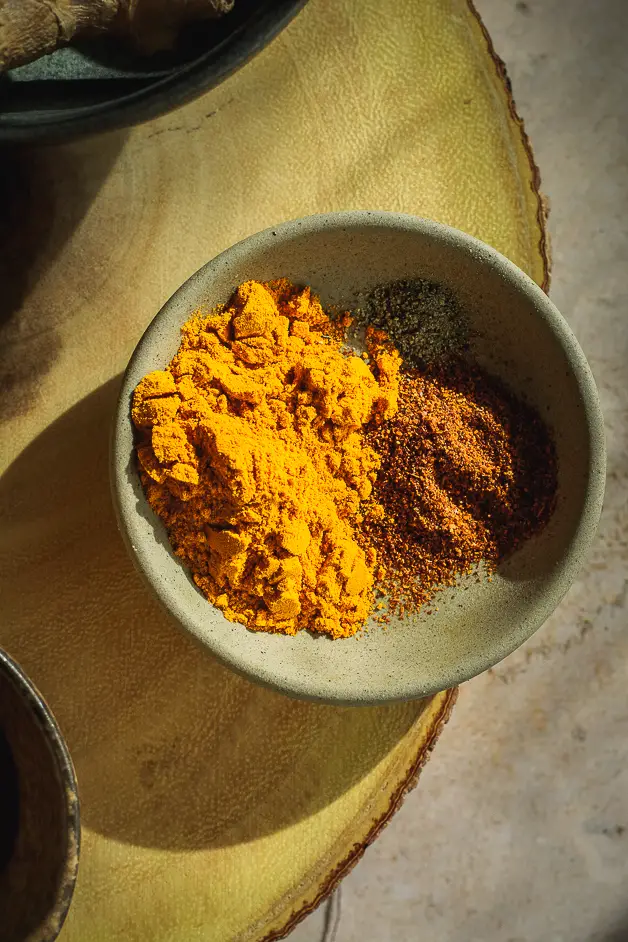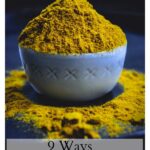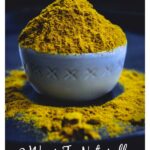Serotonin is primarily produced in the gut and there are several things we can do to naturally boost our serotonin levels every single day. These 9 tips are ideal for supporting healthy serotonin levels.
If there is one neurotransmitter that continues to fascinate scientists and lay people alike, it's serotonin. While most people are familiar with serotonin in relation to mental health, not many understand the role serotonin plays in the gut as it relates to the brain as it relates to the gut...you get the idea. It's a symbiotic relationship and both the brain and gut rely on each other in order to work optimally.
I've discussed this in previous posts but I will reiterate that 90% or more of the body's serotonin production takes place in the gut. Up until recently, common thinking was that serotonin is created by the brain and is strictly limited to our brain function.
What is serotonin?
Serotonin, also known as (5-hydroxytryptamine, 5-HT) is a neurotransmitter found in the body; a chemical that carries out signals between nerves. It is found in the gut, brain, and blood platelets. Serotonin is responsible for mood, behavior, appetite and sleep, digestion, memory, and sex drive and plays a key role in the central nervous system and digestive system.
What does serotonin affect?
- Bowel function: The entire gut is line with some 200-600 million neurons which are embedded in the wall of the gut lining. This is called the Enteric Nervous System (ENS). It is responsible for the breakdown of food, proper absorption and elimination. Serotonin is primarily found in the stomach and mucosal lining of the intestines.
- Mood: Serotonin is responsible for regulating mood. When serotonin levels are down we tend to suffer from anxiety, depression, worry, irritability and anger.
- Blood clots: Blood platelets take up serotonin which is released in order to heal wounds by minimizing the small arteries surrounding the wound.
- Sexual function: Ironically, low serotonin levels have been associated with increased sexual function and decreased sexual function when there's an increase in serotonin. One of the common complaints about SSRIs (Selective Serotonin Reuptake Inhibitors)
- Bone health: One of the conundrums of too much serotonin is that it can lead to bone loss, as research has shown.
- Nausea: The moment you put something in your mouth that the body considers "toxic" an overabundance of serotonin is released which leads to diarrhea and nausea, helping the body quickly expel the substance.
- Sleep: Serotonin plays a role in the wake/sleep cycle and affects different parts of the brain either stimulating or inhibiting sleep.
What happens when we have too little serotonin?
Symptoms of serotonin deficiency may not always be obvious and may not look the same for everyone. Here are some of the signs and symptoms:
- Anxiety
- IBS symptoms, particularly with constipation
- Depression
- Muscle pain
- Feelings of hopelessness
- Easily overwhelmed
- Insomnia
- Restlessness
- Low self-esteem
- Anger
- Carbohydrate cravings
- Irritability
Serotonin is found naturally in very few foods such as walnuts and hickory and others like pineapple, bananas, tomatoes, and plums in much smaller concentrations. However, it is important to note that: "Unlike the precursors to serotonin such as 5HTP and tryptophan, serotonin itself does not cross the blood-brain barrier, and consuming foods that contain serotonin has no effect on the serotonin level in the brain."

Before serotonin comes tryptophan
Eating foods that are rich in tryptophan, as a precursor to serotonin, can have an effect on the brain. In order for tryptophan to be converted to serotonin, several processes have to take place. Since amino acids all compete to be able to be cross the blood brain barrier, tryptophan has to work hard in order to be a top candidate.
"First, brain tryptophan is converted to 5-hydroxytryptophan by the tryptophan hydroxylase enzyme (the rate-limiting step of serotonin synthesis). Second, 5-hydroxytryptophan is converted to serotonin by the aromatic amino acid decarboxylase enzyme. It is the activity of tryptophan hydroxylase that is dependent on the availability of brain tryptophan."
One of the most interesting things about tryptophan is that in order for it to cross the blood-brain barrier, it does need carbohydrate to aid it in the conversion from tryptophan to 5-HTP to serotonin. One of the simplest ways to do this is by eating a trypthophan-rich meal and following it with a carbohydrate two hours or so later. Preferably in the form of a complex carbohydrate, such as an apple or other fruit eaten by itself with no other protein. (Protein blocks serotonin synthesis). Carbohydrates facilitate the conversion of tryptophan to serotonin.
How to boost serotonin naturally
Eat Meat
The best way to increase serotonin is by consuming food rich in tryptophan. The best sourcea of tryptophan are: turkey, beef, chicken, eggs and dairy. Most animal protein is going to increase tryptophan.
Get Outside
I don't know about you but I'm generally much happier after I've spent time in the sun. Research suggests that this is one of the simplest and most effective ways to increase serotonin. One of the reasons many of us suffer from Seasonal Affective Disorder (SAD) during the winter months is the lack of serotonin production from natural light.
Eat Carbs Alone
Don't go running out for a donut just yet! While consuming too many carbs can lead to other problems such as spikes in insulin, consuming a complex carb such as sweet potatoes, fruit or quinoa, will ensure that transport of important amino acids, such as tryptophan, is successful.
Try eating carbohydrates such as an apple after an hour or so of eating a protein rich meal.Move More
I probably don't have to tell you how good it feels to have finished a workout. Many of us exercise not just for our bodies, but also for our minds. This study suggests that tryptophan naturally increases in the brain when exercising. I exercise primarily for my mental health, because it makes a big difference.
Massage
If you've been lucky to have a message (whether professional or not), you know how blissfully calm and happy you feel afterwards. That's not a coincidence. The stress hormone, cortisol significantly decreases during and after a massage, while serotonin and dopamine levels rise.
There are tons of instructions online for giving yourself a massage as well, if receviving one isn't your thing.Include Turmeric In Your Diet
Some studies suggest that turmeric will be a major player once we have more substantiated evidence for its effects on serotonin, dopamine and norepinephrine. A 2010 study suggests that curcumin, the active ingredient in turmeric, can have an impact on neurological disorders. "Curcumin demonstrates neuroprotective action in Alzheimer's disease, tardive dyskinesia, major depression, epilepsy, and other related neurodegenerative and neuropsychiatric disorders." Also, more and more research suggests that turmeric could play a role in aiding with depression and anxiety. I've mentioned this in previous posts but turmeric tends to be poorly absorbed in the blood stream so consuming pepper with it, will ensure proper absorbency.
Vitamin D
Vitamin D facilitates the release and production of serotonin. While you can't get tryptophan from vitamin D directly, it acts as a hormone and helps release neurotransmitters, with serotonin being among them. The best way to get vitamin D is ultimately from direct sunlight but in the cold winter months, it's often a good idea to supplement.
Seafood
Seafood is a great way to increase Omega 3s in the diet. "An effect of omega-3 intake suggested to positively influence the depressive status is the potential interaction with the serotoninergic and dopaminergic transmission, including metabolism, release, uptake, and receptor function." Consuming a diet rich in Omega 3s actually facilitates and also increases the production of serotonin and improves the transport of it across neurons.
Vitamin B 6
"A low level of vitamin B6 might theoretically cause depression as vitamin B6 is a cofactor in the tryptophan-serotonin pathway." One of the best ways of obtaining B-6 is through food or supplementation. The top foods high in B-6 include: turkey and chicken breast, tuna, pistachios, pinto beans, avocado and sunflower seeds.
As you see, it always boils down to leading a healthy lifestyle and eating whole foods. If you're very serious about boosting serotonin levels, there are also options such as supplementing with tryptophan and 5-HTP. While in the short term, those have shown to be helpful, research suggests that long term use of supplementation with amino acids can have potentially negative side effects such as serotonin syndrome (SS). So before you consider going down the supplement road, do your research. In my opinion, it's always best to look to food and lifestyle as main avenues for boosting serotonin naturally.







Martha
Great message on how to increase serotonin levels and it's importance in our gut!! Very informative
Daniela Modesto
Thank you so much, Martha! I'm very happy to hear that! 🙂
Zack
Really great info, thanks! Now I'm just wondering what that bowl of powder is. 😀 And do I need to eat a bowl of powder every day?
Daniela Modesto
Hi Zack - so the bowl of powder is turmeric and that's only for the imagery and styling but you most certainly wouldn't have to eat a bow every dayl! 500-2000mg are the recommended doses for daily consumption. And don't forget to include pepper if you choose to take it. Thanks for checking out the post!
lo
is waiting to ingest carbs that significant to say wait two hours or so later after protein? do you mean up to three hours? that sounds intense for hormones, what about one hour after?
Daniela Modesto
These are honestly just suggestions and you can use your intuition. Bodies digest at different rates so whatever works for you and however you feel, is the right thing to do!
Kaya
Excellent article. I truly appreciate the combination of practical tolls with the science to back it up. I've spent more than 10 years suffering from migraines, many in the middle of the night that have left even my neurologist scratching her head. Turns out that a cycle of serotonin depletion was resulting in blood vessel + nerve dysregulation, and muscle rigidity. Then the migraine itself would drain serotonin further (in case any other readers are struggling with migraines too).
I would add that because serotonin is made in the gut, gut health can play a critical role. Dr. Gundry's work about foods that contain lectins and shred the intestinal lining has been very helpful for me for both my serotonin issues and my autoimmune condition.
dmodesto
Thank you so much, Kaya for providing such insight! I'm so sorry you're dealing with this but I'm really glad you've been able to get some answers! I'm someone who struggles with low serotonin so I can empathize...